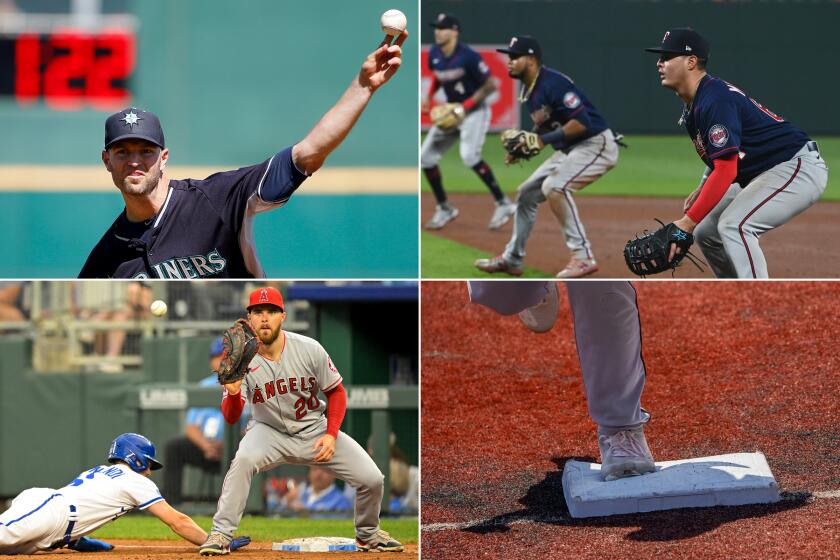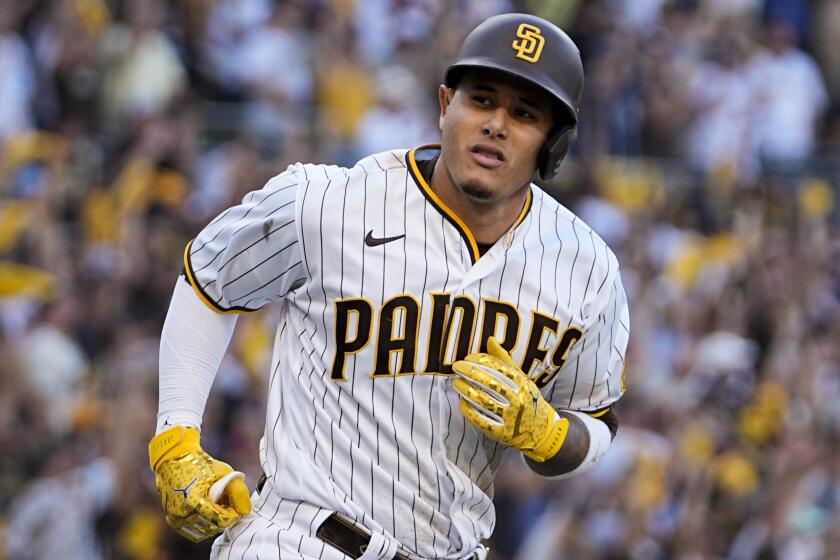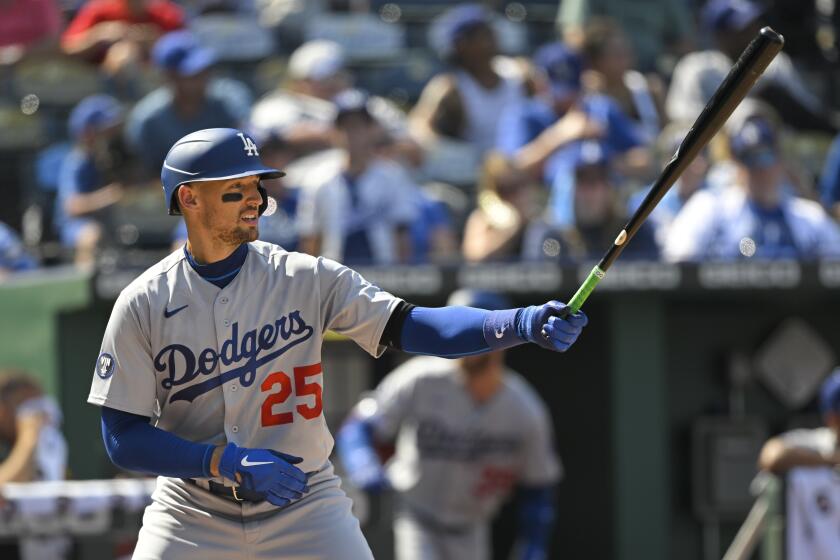Dodgers give pitch clock, other new rules rave reviews after spring opener
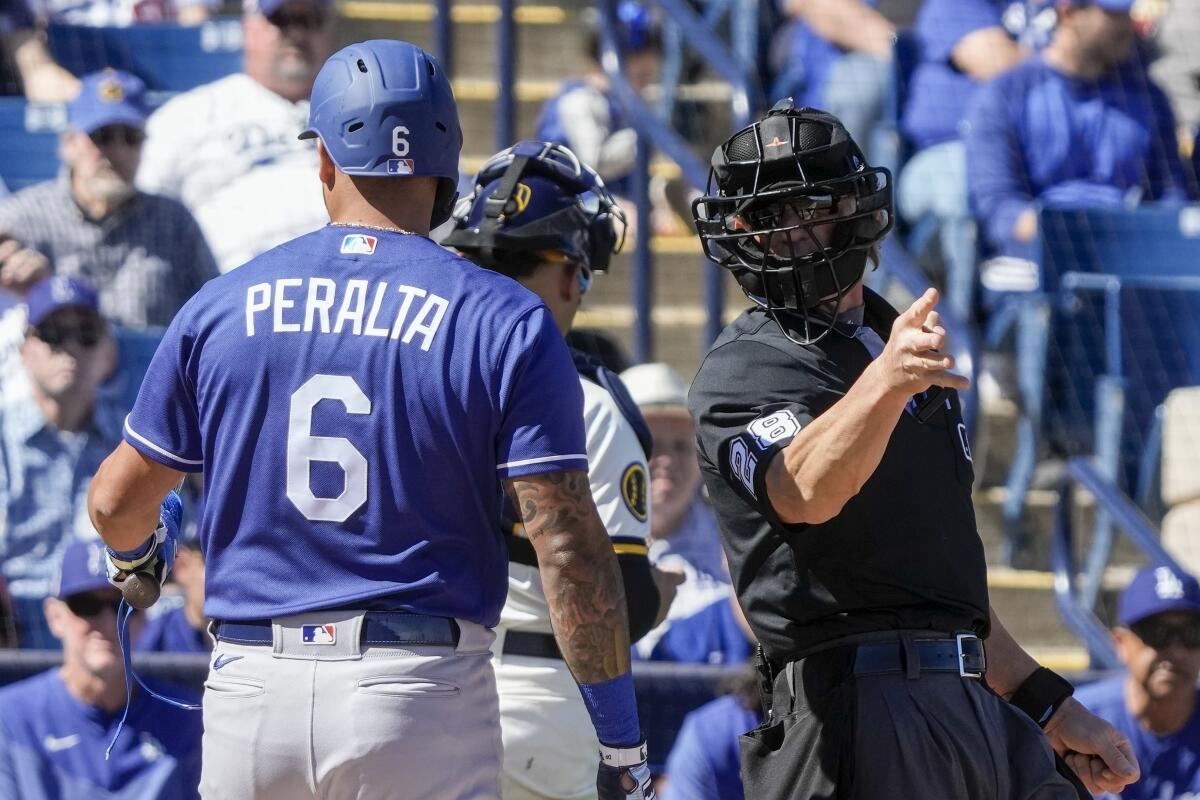
- Share via
PHOENIX — The pitch was a ball before it even started toward the plate.
During their first spring training game Saturday, in a full count with David Peralta at bat in the second inning, the Dodgers encountered one of Major League Baseball’s new rules for the first time.
Though Milwaukee Brewers left-hander Alex Claudio misfired on what would have been ball four anyway, home plate umpire Jim Wolf rose up, flashed four fingers and pointed at his watch.
Claudio, he ruled, hadn’t begun his delivery before the expiration of MLB’s newly introduced pitch clock.
A pitch clock, pickoff limit, the changing of shifts on defense and bigger bases could make for a different game in the upcoming season.
Therefore, even if the throw had been right down the middle, Peralta would have been awarded first base.
“It was different,” Peralta said. “But I got the walk.”
It was the first example of what is expected to be a major change in the rhythm — and, more importantly, the length — of big league games, with Cactus League contests introducing a series of significant rule changes MLB enacted over the offseason.
Starting this season, infield shifts have been banned, forcing teams to keep their infielders on the dirt and put two on either side of second base.
Pickoffs and “rubber disengagements” have been limited for pitchers to just two per at-bat, while a batter can only call time on one occasion at the plate.
Even the somewhat comically enlarged new bases could produce subtle changes.
“When you see the huge extra-large pizza box, it’s easy to hit,” Peralta joked about his experience Saturday running the bases.
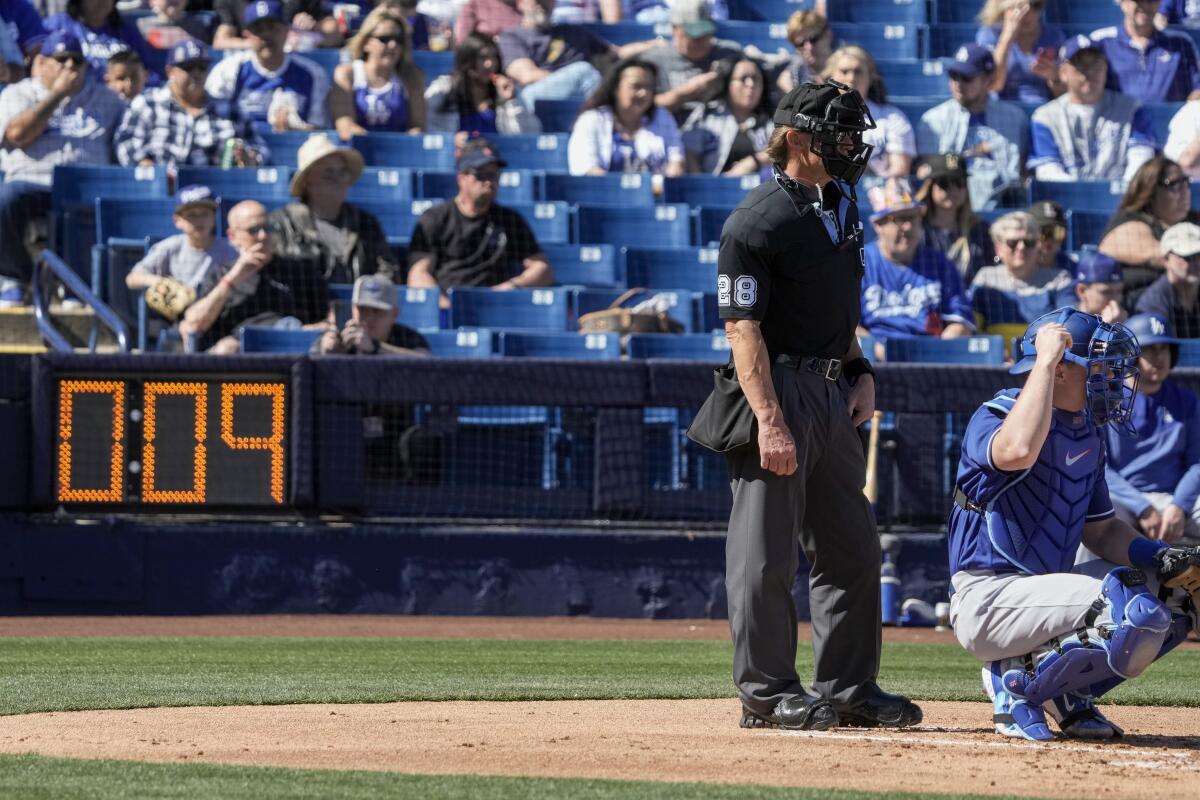
Nothing, however, will affect the game more than the pitch clock.
Every time a pitcher receives the ball on the mound, they now have 15 seconds (or 20 seconds with runners on base) to begin their delivery.
Batters also must be “alert” to the mound with eight seconds remaining on the timer, which will be displayed throughout ballparks in several locations beyond center field and behind home plate.
The league’s hope is to manufacture shorter, faster-paced games.
On Saturday, at least, it worked, with the Dodgers’ 7-4 loss to the Brewers lasting only 2 hours 21 minutes — fitting a pattern of other shorter game times around baseball this weekend.
“Everyone was tuned in to the pitch clock,” manager Dave Roberts said. “I thought it was great. Pace was really good.”
In the middle of the San Diego Padres efforts to surpass the Dodgers is Manny Machado, the third baseman who has evolved into the club’s unquestioned leader.
Claudio’s automatic ball to Peralta was the first of four pitch clock violations Saturday.
After Peralta caught himself focused too closely on the pitch clock earlier in the at-bat — “Sometimes you’re thinking the clock is gonna run out,” he said, “but just concentrate and let the umpire make the decision” — the Dodgers new outfielder hadn’t even noticed Claudio took too long to get into his full-count delivery.
Before the ball left Claudio’s left hand, however, Peralta heard Wolf call the violation, voiding the pitch and giving him a free base.
“It was gonna be ball four anyways,” Peralta said. “But who knows if I would have swung” if Wolf didn’t say anything.
Before Saturday, the new rules had already been playing an outsize role in Dodgers camp.
The team stationed clocks near the bullpens and had coaches keeping track of players who need to quicken their delivery on the mound or set-up at the plate.
Two early candidates: Julio Urías, who surpassed the pitch clock limit four times in a simulated game Thursday; and J.D. Martinez, who on several occasions Saturday waited right until the eight-second mark to turn his attention to the pitcher.
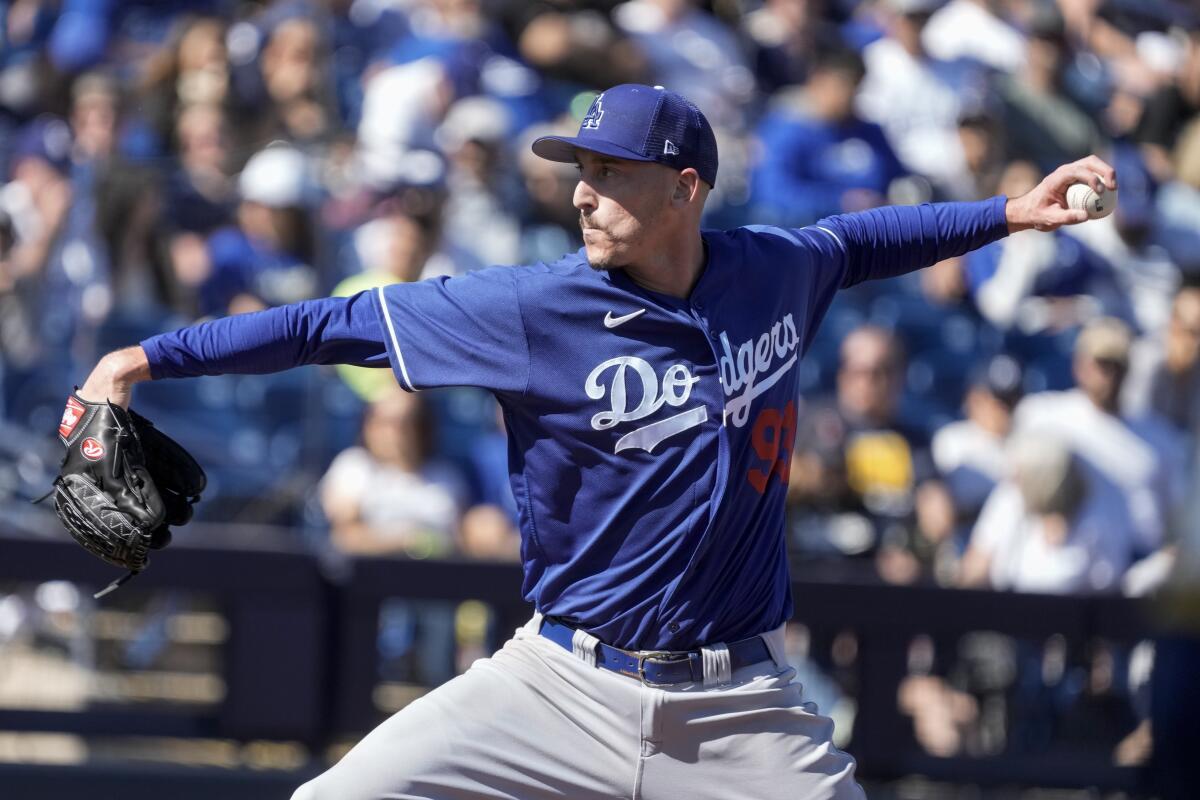
Major league field coordinator Bob Geren has been spearheading much of the Dodgers’ rule-adjustment efforts. He has held several on-field conversations with groups of players at Camelback Ranch, and on Saturday talked to umpires about rules all the way back to the clubhouse postgame.
Third base coach Dino Ebel has been reminding the team’s infielders of the new shift rules, yelling out more than once this camp that they can’t start a pitch with even a heel on the grass, or a foot on the wrong side of second base.
“A little weird not seeing three guys on the right side,” left-handed-hitting first baseman Freddie Freeman said. “That’s how it looked when I was coming up. Now, 13 years later, it’s going back to that.”
There are still some questions to be addressed.
Freeman wasn’t sure Saturday how long he had to put on his protective baserunning equipment at first base.
Roberts also agreed that the condensed time between pitches could be more complicated during regular-season games, especially when signs need to be relayed from base coaches to their hitters.
After a dream resurgence last season, Trayce Thompson has even bigger goals in mind for 2023 as he also prepares to play for Britain in the WBC.
Nonetheless, to this point, the rules have been more of a novelty than a nuisance.
During Thursday’s simulated game, Max Muncy celebrated a ground-ball single through the right side of the infield — the kind of well-struck roller that was often gobbled up by shifted infielders in the past.
“Yeah!” Muncy shouted while clapping as he pulled into first base. “No shift!”
That attitude permeated to Saturday, with the new rules receiving more rave reviews from Dodgers coaches and players.
“I think they realized that it wasn’t as big of a deal as we talked about,” Roberts said, “which is a credit to them.”
More to Read
Are you a true-blue fan?
Get our Dodgers Dugout newsletter for insights, news and much more.
You may occasionally receive promotional content from the Los Angeles Times.

